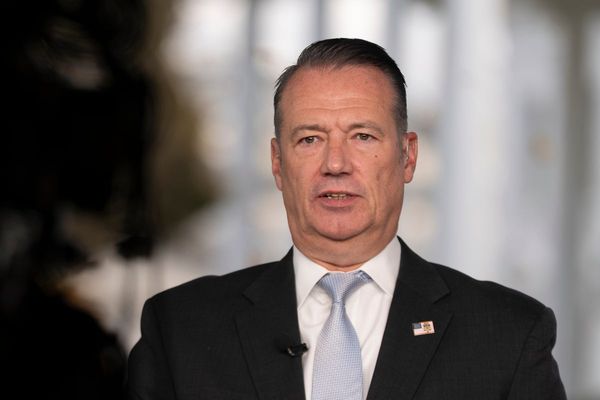
Rupert Murdoch’s Australian lieutenant has told News Corp journalists there is “no one News Corp view” about the election and that individual editors are free to decide which party to endorse.
Executive chairman of News Corp Australasia, Michael Miller, said it was important to remember that “electorate issues in Surry Hills differ greatly to those in Broken Hill” and that audiences “expect us to interrogate all parties and all sides”.
“Firstly, there is no ONE News Corp view, and I purposely avoid expressing views at election time so there is no confusion between individual mastheads and columnist views, and any corporate position,” Miller said in an all-staff election memo sent on Friday.
Historically, newspapers will editorialise on the eve of an election to give readers the view of the editor-in-chief on which party would be best to lead the country. The editorial view is not supposed to influence a masthead’s coverage of the news.
News Corp has not endorsed Labor for more than a decade at the state or federal level, with the one notable exception of the crocodile-obsessed NT News, which backed Labor in 2019.
All the company’s papers endorsed Scott Morrison for prime minister, and their coverage during the election campaign was hostile to then opposition leader Bill Shorten.
If you go back 15 years to 2007, the Australian newspaper endorsed Labor leader Kevin Rudd for prime minister, but it is highly unusual for News Corp, which dominates the Australian newspaper market, to back a Labor government.
Veteran journalist Malcolm Farr has covered every election since 1993 and is analysing this year’s coverage for the Judith Neilson Institute. The former Daily Telegraph and news.com.au political editor said Miller’s memo will encourage even closer monitoring of the way the News Corp papers cover the election.
“That’s going to be interesting to watch,” Farr told Guardian Australia. “Because the nature of the Australian and the News Corp tabloids is to support a strong prime minister. And that’s been a consistency for close to 30 years, as John Howard would tell you, but also as Paul Keating could tell you. If I remember correctly, the Daily Telegraph was partial to him in the showdown with John Hewson.”
Albanese’s gaffe on the first day of the campaign, when he couldn’t state the national unemployment figure or the official cash rate, gave News plenty of ammunition, and was seized on by non-News Corp media too.
Farr says Miller’s memo appears to contradict the coverage of the gaffe in two of his papers.
“The Australian and the Daily Telegraph seem to have a very similar headline,” Farr said. “‘It’s not Albanese-easy’ or whatever it was. There seems to be some conformity there, but that might have just been coincidence.”
The Murdoch papers have repeatedly suggested that Albanese is unknown to the electorate and that he is more of a left-wing radical than he is claiming to be, with headlines “Unknown Albanese” in the Australian and “great unknown Anthony Albanese” in the Herald Sun.
🗞 Today's Front Page. Read the Mercury's digital edition, an exact copy of how the paper was printed: https://t.co/qp2cZxCv6T pic.twitter.com/Rlo7Bdqf99
— Mercury (@themercurycomau) April 11, 2022
The Australian’s investigations editor and writer Sharri Markson reached back 37 years in an attempt to find skeletons in the opposition leader’s past. Although he is an economics graduate from the University of Sydney, the Australian accused him of trying to “inflate his status as an ‘economics adviser’”.
Miller said News Corp’s mastheads and its journalism should put the needs of individual communities first. “What matters in Ipswich is different to what matters in Ingleburn. The challenges for Tasmanians vary to those of Territorians.
“It is customary for editors to endorse a candidate in the lead-up to an election,” he said. “It is the responsibility of each editor to present what, considering all the information available, they conclude is best for their masthead’s audience.”
Albanese has tried to inflate his status as an economics adviser to the legendary Hawke govt in a bid to pump up his damaged economic credentials but was in fact a research officer to an out-of-cabinet minister and opposed the major reforms of the time.https://t.co/vHP3TZnJqR
— Sharri Markson (@SharriMarkson) April 12, 2022
In 2019, Guardian Australia endorsed Labor because of the climate emergency and in 2016 Guardian Australia did not express a view.







